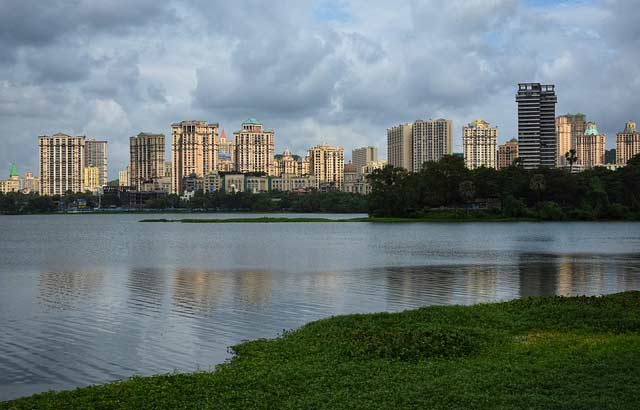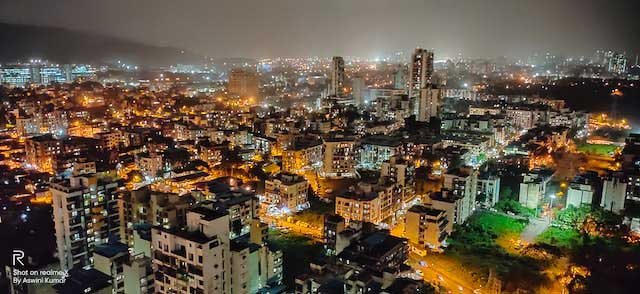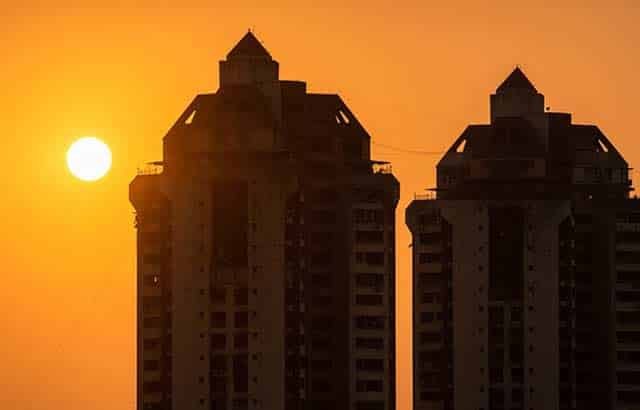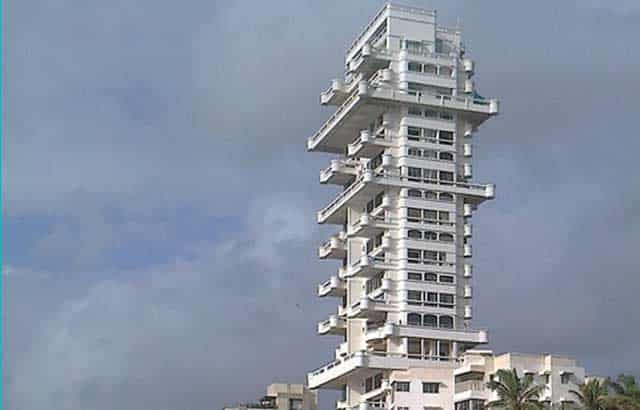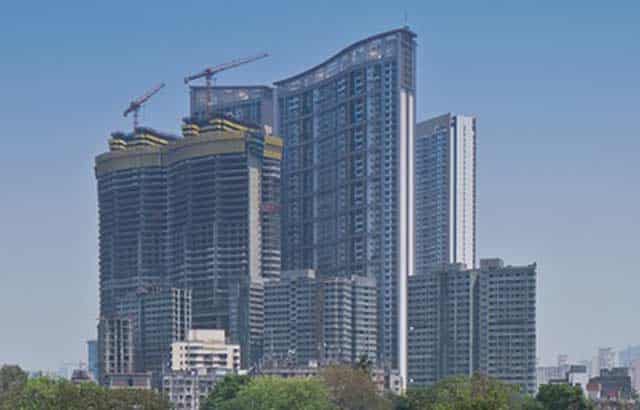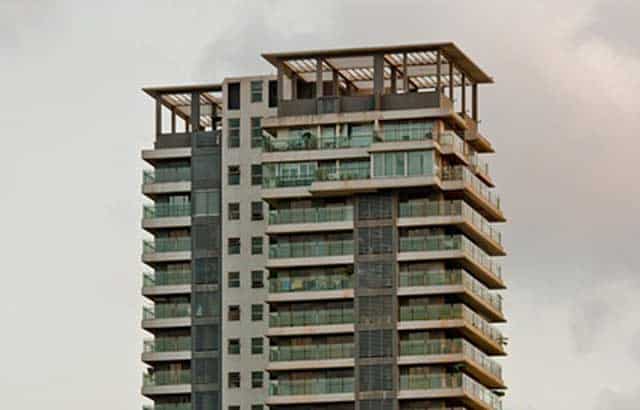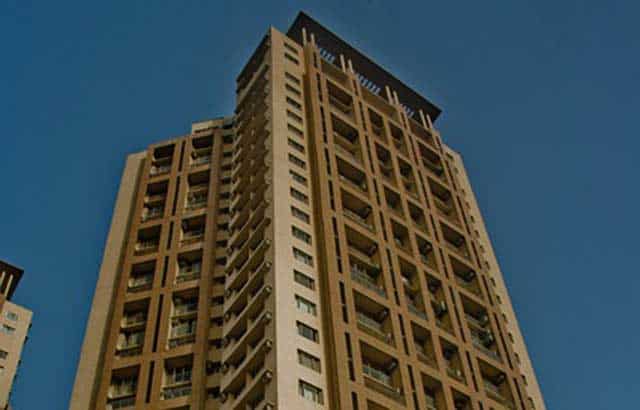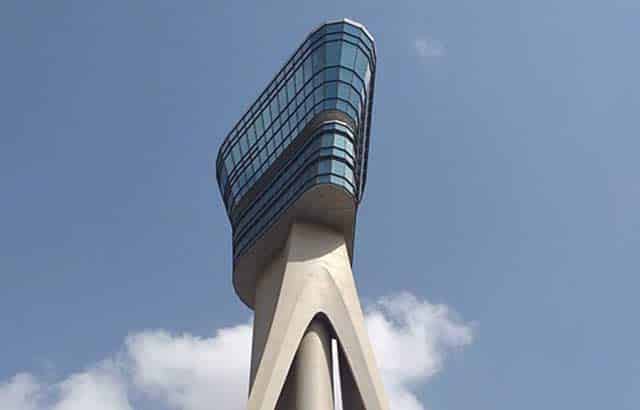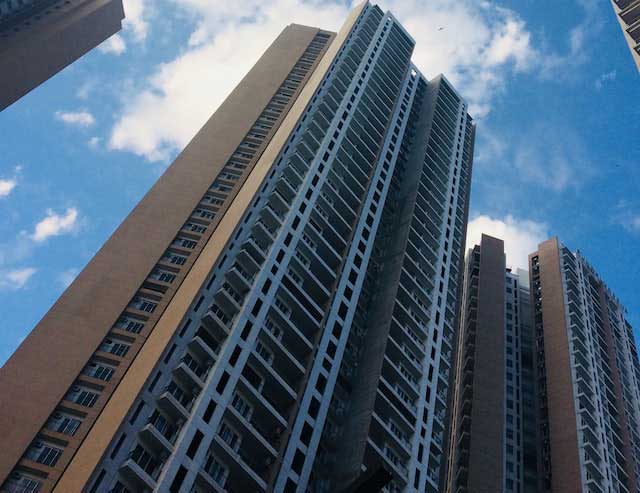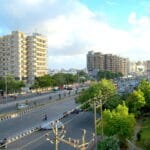Welcome to the bustling city of Mumbai, where the real estate market is as dynamic as the city itself. From towering skyscrapers to luxurious villas, Mumbai offers a diverse range of properties that cater to the needs of its ever-growing population.
In this ever-evolving landscape, understanding the latest trends, opportunities, and challenges is essential for both investors and homeowners alike.
As the financial capital of India, Mumbai attracts investors from all over the world, seeking to tap into the potential of this vibrant market. However, navigating through the complexities of the real estate sector can be a daunting task.
This is where our expertise comes in. In this comprehensive guide, we will delve into the latest trends shaping the Mumbai real estate market, explore the lucrative opportunities available, and shed light on the challenges that buyers and sellers face in this highly competitive industry.
So, whether you’re a seasoned investor or a first-time homebuyer, get ready to uncover the secrets of Mumbai’s real estate market and make informed decisions that will help you thrive in this fast-paced city.
Table of Contents
Current trends in the Mumbai real estate market
Mumbai’s real estate market is constantly evolving, and staying up to date with the latest trends is crucial for anyone looking to invest in this city. One of the prominent trends in recent years is the rise of affordable housing projects.
With the growing demand for budget-friendly homes, developers are now focusing on constructing affordable housing complexes in various parts of the city.
This trend not only caters to the needs of the middle-class population but also presents an excellent investment opportunity for those looking to earn rental income.
Another significant trend is the increasing popularity of co-living spaces. With the rising number of young professionals and students moving to Mumbai, the demand for shared accommodation has skyrocketed.
Co-living spaces offer affordable and flexible living arrangements, making them an attractive option for young individuals.
Developers are capitalizing on this trend by creating purpose-built co-living spaces that provide all the necessary amenities and a sense of community.
Additionally, sustainable and eco-friendly projects are gaining traction in the Mumbai real estate market. As people become more conscious of their environmental impact, there is a growing demand for green homes.
Developers are incorporating sustainable features such as rainwater harvesting, solar panels, and energy-efficient appliances in their projects.
These eco-friendly initiatives not only help reduce the carbon footprint but also attract environmentally conscious buyers.
Opportunities for investors in the Mumbai real estate market
- Investing in the Mumbai real estate market can be highly lucrative if done strategically.
- One of the most promising opportunities lies in the commercial real estate sector.
- With Mumbai being the financial hub of India, there is a constant demand for office spaces and retail outlets. Investors can capitalize on this demand by investing in commercial properties in prime locations such as Bandra Kurla Complex, Nariman Point, and Lower Parel.
- These areas offer excellent rental yields and the potential for capital appreciation.
- Another opportunity for investors is to participate in the redevelopment projects that are taking place across the city.
- Mumbai is known for its old and dilapidated buildings, especially in the South Mumbai area.
- The government has initiated several redevelopment projects to transform these old structures into modern and sustainable buildings.
Investors can purchase properties in these redevelopment projects at a lower cost and enjoy the benefits of a brand new property once the project is completed. - Additionally, investing in luxury properties in Mumbai can yield significant returns.
- The city is home to some of the most prestigious residential projects that cater to the affluent segment of the population.
- These luxury properties offer world-class amenities, breathtaking views, and a luxurious lifestyle.
- Investors can target high-net-worth individuals and expatriates who are willing to pay a premium for such properties.
Challenges faced by the Mumbai real estate market
- Despite the numerous opportunities, the Mumbai real estate market is not without its challenges.
- One of the major challenges is the high property prices. Mumbai consistently ranks among the most expensive cities in the world when it comes to real estate.
- The soaring property prices make it difficult for first-time homebuyers to enter the market and pose a challenge for investors looking for affordable investment options.
- Another challenge is the lack of transparency in the real estate sector. Due to various reasons, including black money transactions and unregistered properties, the market lacks transparency, making it difficult for buyers to make informed decisions.
- This lack of transparency also opens the door for fraudulent activities, putting investors at risk.
- It is crucial for buyers and investors to conduct thorough due diligence and work with reputable developers and brokers to mitigate these risks.
- Additionally, the complex regulations and lengthy approval processes in the Mumbai real estate market can be a challenge for developers.
- Obtaining necessary clearances and permissions from multiple authorities can cause delays in project completion and increase costs.
- These challenges often trickle down to buyers and investors, affecting the overall market dynamics.
Factors influencing the Mumbai real estate market
- Several factors influence the Mumbai real estate market and contribute to its growth or decline. One of the primary factors is infrastructure development.
- The city’s infrastructure plays a crucial role in determining the demand for properties in different areas.
- The expansion of metro lines, the construction of new highways, and the improvement of connectivity can significantly impact property prices and investment opportunities.
- Buyers and investors should keep a close eye on upcoming infrastructure projects to identify emerging real estate hotspots.
- Economic factors also play a crucial role in shaping the Mumbai real estate market.
- The performance of the economy, interest rates, and government policies can influence buyer sentiment and investment decisions.
- A booming economy and favorable policies attract more investors, while economic downturns can lead to a slowdown in the market.
- Socio-cultural factors such as demographics and lifestyle preferences also impact the real estate market.
- The changing demographics of Mumbai, with a growing young population and an influx of migrants, create new demands for housing and amenities.
Developers need to adapt to these changing preferences and cater to the evolving needs of the population.
Tips for buying property in Mumbai
Buying property in Mumbai can be a complex process, but with the right guidance, it can be a rewarding experience. Here are some tips to keep in mind when buying property in Mumbai:
- Research the market: Before making any investment, thoroughly research the market trends, property prices, and upcoming projects. This will help you make an informed decision and avoid any potential pitfalls.
- Set a budget: Determine your budget and stick to it. Mumbai offers properties in a wide price range, so it’s essential to have a clear understanding of how much you can afford.
- Location is key: Consider the location carefully. Factors such as proximity to schools, offices, transportation hubs, and amenities should be taken into account. Choose a location that suits your lifestyle and future needs.
- Verify legalities: Ensure that the property you are interested in has all the necessary legal clearances and approvals. Engage a lawyer to review the documents and verify the legitimacy of the property.
- Check the reputation of the developer: Work with reputable developers who have a proven track record. This will give you peace of mind and minimize the risk of fraud or delays in project completion.
Top residential areas in Mumbai
Mumbai offers a plethora of residential areas, each with its unique charm and appeal. Here are some of the top residential areas in Mumbai:
- Bandra: Known as the queen of suburbs, Bandra is a trendy neighborhood that offers a mix of residential and commercial spaces. It is home to celebrities, expatriates, and affluent individuals. Bandra offers excellent connectivity, upscale shopping, and a vibrant nightlife.
- Powai: Situated near the scenic Powai Lake, Powai is a sought-after residential area. It is known for its lush green surroundings, modern infrastructure, and proximity to IT parks and educational institutions. Powai offers a peaceful and serene environment away from the hustle and bustle of the city.
- Andheri: Andheri is a bustling suburb that caters to a diverse population. It is divided into two parts – Andheri East and Andheri West. Andheri offers excellent connectivity, a wide range of housing options, and a vibrant social scene. It is a popular choice for young professionals and families.
- Juhu: Juhu is a posh neighborhood located along the Arabian Sea. It is known for its beautiful beach, upscale residential complexes, and luxurious bungalows. Juhu is home to many Bollywood celebrities and offers a high standard of living.
Commercial real estate in Mumbai
The commercial real estate market in Mumbai is robust and offers a plethora of opportunities for investors. Some of the prime commercial areas in Mumbai include:
- Bandra Kurla Complex (BKC): BKC is Mumbai’s premier business district and a hub for multinational corporations, financial institutions, and government offices. It offers state-of-the-art office spaces, excellent connectivity, and a vibrant business ecosystem.
- Nariman Point: Nariman Point is one of the oldest and most prestigious commercial areas in Mumbai. It is home to several prominent business houses, banks, and financial institutions. Nariman Point offers stunning views of the Arabian Sea and a prime location for businesses.
- Lower Parel: Lower Parel has transformed from an industrial area to a thriving commercial hub. It is known for its swanky office spaces, high-end malls, and luxury residential complexes. Lower Parel attracts businesses from various sectors, including media, entertainment, and finance.
- Powai: Powai is not only a popular residential area but also an emerging commercial hub. It is home to several IT parks, corporate offices, and co-working spaces. Powai offers a perfect blend of work and leisure with its serene surroundings and modern infrastructure.
Real estate regulations and policies in Mumbai
The Mumbai real estate market is governed by several regulations and policies that aim to protect the interests of buyers and investors. Some of the key regulations include:
- Real Estate (Regulation and Development) Act, 2016 (RERA): RERA is a central legislation that aims to regulate the real estate sector and promote transparency. It mandates the registration of all real estate projects and establishes a regulatory authority to address grievances and ensure timely completion of projects.
- Maharashtra Ownership of Flats Act, 1963 (MOFA): MOFA is a state-level legislation that governs the sale of flats in Maharashtra. It provides guidelines for the registration of housing societies, maintenance of common areas, and the rights and obligations of flat owners.
- Goods and Services Tax (GST): GST is a unified tax system that replaces multiple indirect taxes. It is applicable to the sale of under-construction properties and commercial properties. Buyers need to factor in the GST rate while calculating the cost of the property.
- Stamp Duty and Registration: Stamp duty and registration charges are levied on property transactions in Mumbai. The rates vary based on the value of the property and are paid to the state government. It is essential to understand the stamp duty and registration charges applicable in your transaction.
Conclusion: The future of the Mumbai real estate market
- The Mumbai real estate market is continuously evolving, driven by changing demographics, infrastructure development, and economic factors.
- Despite the challenges posed by high property prices and lack of transparency, the market offers numerous opportunities for investors and homebuyers.
- With the right knowledge and guidance, individuals can navigate through the complexities of the market and make informed decisions.
- As the city continues to grow and expand, new residential and commercial areas are emerging, presenting exciting investment prospects.
- The government’s focus on infrastructure development and the implementation of regulations such as RERA have contributed to the overall stability and transparency of the market.
- In conclusion, the Mumbai real estate market is a dynamic and ever-changing landscape that requires careful consideration and research.
- By keeping abreast of the latest trends, exploring the available opportunities, and understanding the challenges, individuals can make sound investment decisions and enjoy the benefits of this vibrant market.
So, whether you’re a seasoned investor or a first-time homebuyer, Mumbai’s real estate market has something to offer for everyone.

